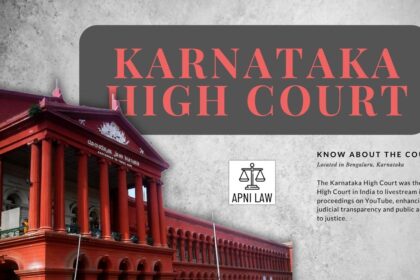Code:
(1) No Court shall take cognizance of an offence punishable under section 356 of the Bharatiya Nyaya Sanhita, 2023 except upon a complaint made by some person aggrieved by the offence:
Provided that where such person is a child, or is of unsound mind or is having intellectual disability or is from sickness or infirmity unable to make a complaint, or is a woman who, according to the local customs and manners, ought not to be compelled to appear in public, some other person may, with the leave of the Court, make a complaint on his or her behalf.
(2) Notwithstanding anything contained in this Sanhita, when any offence falling under section 356 of the Bharatiya Nyaya Sanhita, 2023 is alleged to have been committed against a person who, at the time of such commission, is the President of India, the Vice-President of India, the Governor of a State, the Administrator of a Union territory or a Minister of the Union or of a State or of a Union territory, or any other public servant employed in connection with the affairs of the Union or of a State in respect of his conduct in the discharge of his public functions, a Court of Session may take cognizance of such offence, without the case being committed to it, upon a complaint in writing made by the Public Prosecutor.
(3) Every complaint referred to in sub-section (2) shall set forth the facts which constitute the offence alleged, the nature of such offence and such other particulars as are reasonably sufficient to give notice to the accused of the offence alleged to have been committed by him.
(4) No complaint under sub-section (2) shall be made by the Public Prosecutor except with the previous sanction—
(a) of the State Government,—
(i) in the case of a person who is or has been the Governor of that State or a Minister of that Government;
(ii) in the case of any other public servant employed in connection with the affairs of the State;
(b) of the Central Government, in any other case.
(5) No Court of Session shall take cognizance of an offence under sub-section (2) unless the complaint is made within six months from the date on which the offence is alleged to have been committed.
(6) Nothing in this section shall affect the right of the person against whom the offence is alleged to have been committed, to make a complaint in respect of that offence before a Magistrate having jurisdiction or the power of such Magistrate to take cognizance of the offence upon such complaint.
Explanation:
This section specifies the conditions under which a court can take cognizance of offences under Chapter XIX of the BNSS. Here’s a breakdown:
- General Rule: No court can take cognizance of an offence under Chapter XIX unless a complaint is filed by the aggrieved person.
- Exceptions:
- Victims with Special Circumstances: If the aggrieved person is a minor, intellectually disabled, mentally ill, unable to make a complaint due to illness or infirmity, or a woman who, according to local customs, cannot appear in public, another person can make a complaint on their behalf with court permission.
- Offences Against High Officials: If the offence is against the President, Vice-President, Governor, Administrator, Union/State Minister, or public servant in relation to their official duties, a Court of Session can take cognizance directly on a written complaint from the Public Prosecutor without the case being committed.
- Complaint Requirements:
- The Public Prosecutor’s complaint must detail the facts constituting the offence, its nature, and sufficient information to inform the accused of the alleged crime.
- The Public Prosecutor can only file a complaint after obtaining prior sanction from the relevant government: the State Government for State officials or the Central Government for other cases.
- The Court of Session cannot take cognizance of the offence under subsection (2) unless the complaint is made within six months of the alleged offence.
- Right to Complaint: This section doesn’t stop the actual victim from filing a complaint before a Magistrate with jurisdiction.
Illustration:
Imagine a scenario where a woman is allegedly assaulted by a public servant. The woman is unable to make a complaint due to fear or social pressure. Under this section, another person, with the court’s permission, could file a complaint on her behalf.
Common Questions and Answers:
- Q: Can any court take cognizance of offences under Chapter XIX?A: No, only courts that receive a complaint from the aggrieved person or their representative, as specified in the exceptions.
- Q: What if the victim is a child?A: Someone else can file a complaint on their behalf with the court’s permission.
- Q: Can the Public Prosecutor file a complaint directly for any offence under Chapter XIX?A: No, only for offences committed against specific high officials, and only with the necessary government sanctions. It iswithin the six-month time limit.








